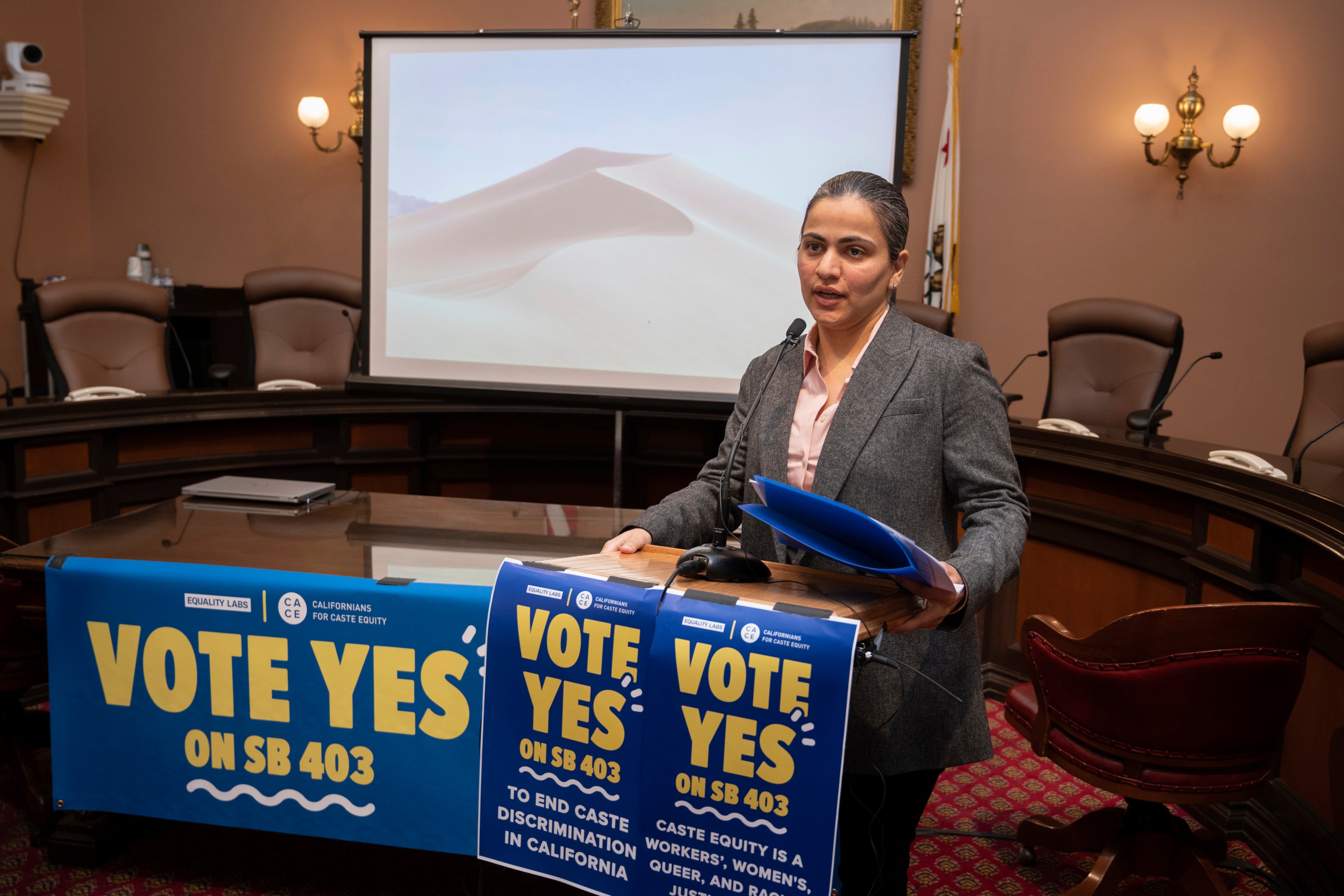California’s anti-caste bill clears major legislative hurdle: ‘We’ve hit a nerve’
‘Caste is an invisible shackle placed on people at birth’

A bill that will outlaw caste discrimination in California passed its first legislative hurdle after a judiciary committee voted in its favour.
On Tuesday, the state’s Senate Judiciary Committee voted in favor of the legislation, sending it on to the next committee for consideration. If passed, the bill could make California the first state in the nation to make caste bias illegal by adding it as a protected category in the state’s anti-discrimination laws.
Senator Aisha Wahab, the first Muslim and Afghan American elected to the state legislature who introduced the bill last month, said: “We’ve hit a nerve and exposed a form of discrimination many never even knew existed.
“Caste is an invisible shackle placed on people at birth. Those of us not raised in that system can’t possibly understand what it does to one’s psyche, the inter-generational trauma it causes.”
However, opponents of the bill said the proposed legislation was “unconstitutional” and said it would unfairly target Hindus and people of Indian descent, the Associated Press reported.
Rakhi Israni, an attorney and California resident, who testified before the committee said the legislation is an “unconstitutional denial of my community’s rights to fairness and equal protection under the law”.
“If this bill is adopted, caste will be the only discrimination law category that is not facially neutral,” she added. “Everyone has a race. Everyone has a colour. Everyone has an age. Not everyone has a caste. This bill is facially discriminatory.”
A United Nations report in 2016 said at least 250 million people worldwide still face caste discrimination in Asia, Africa, the Middle East and Pacific regions, as well as in various diaspora communities. Caste systems are found among Buddhists, Christians, Hindus, Jains, Muslims and Sikhs.
Ms Wahab said she is “deeply sensitive to how minority religions and groups are depicted”.
“Caste goes beyond religion and nationality,” she said. “This legislation primarily protects millions who live in silence and have never had such protection because there is little understanding of this issue. This bill is about protecting people who are vulnerable.”
“This has been a tough and emotional issue to consider,” Senator Dave Min, D-Irvine said. “But I believe the pros (of the bill) outweigh the cons.”
Additional reporting from the wires
Join our commenting forum
Join thought-provoking conversations, follow other Independent readers and see their replies
Comments


Bookmark popover
Removed from bookmarks